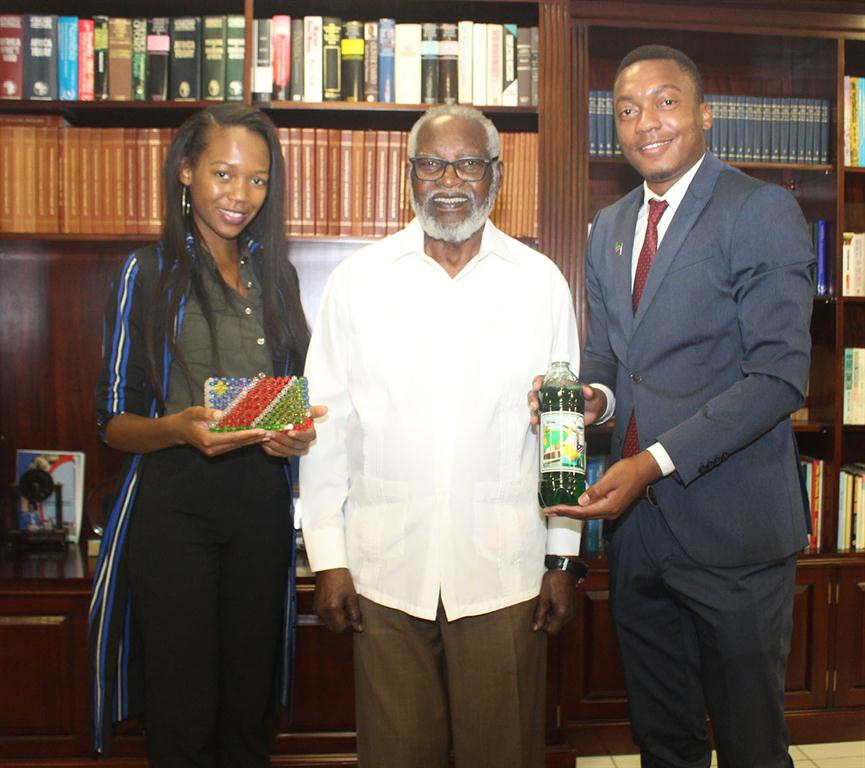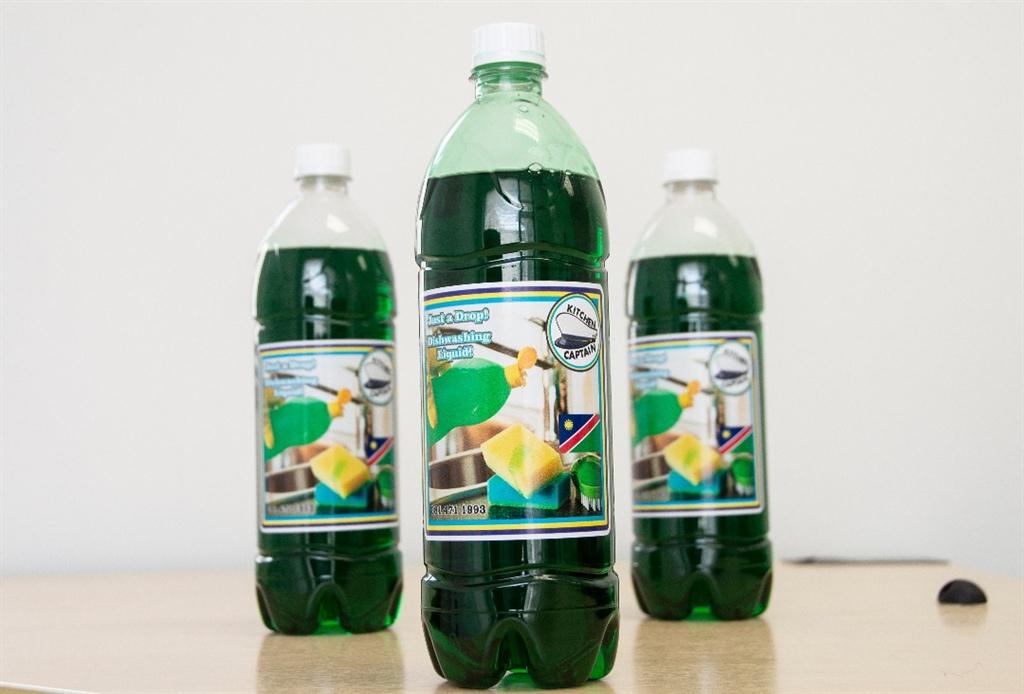Two jobless graduates join forces
Two Namibians decided unemployment was not going to get the better of them, so cousins Linda Penexupifo Ndakolo and John Laudika Lifoshiwana, both in their mid-20s, ventured into the business of manufacturing a dishwashing liquid called Kitchen Captain.
Tunohole MungobaSitting at home and being idle was not an option for Linda Ndakolo and John Lifoshiwana. Both in their mid-20s, Ndakolo and Lifoshiwana became another statistic to the many unemployed graduates in Namibia. The two grew up in the same household and after they were both unable to secure employment, the two decided to unite and create Kitchen Captain, a dishwashing liquid.
After completing her studies in banking, finance and credit with the Namibian Institute of Bankers (IOB), Ndakolo struggled to find employment. “I believed that with insight into the banking world, the mastery of finance and the thorough understanding of credit and risk management, my skills would be marketable. Regrettably, after a long struggle, it was apparent that there were no jobs for graduates,” Linda, who was born and bred in Onamafipa village in the Omusati Region, said.
“With unemployment at my doorstep, I saw it necessary to create something for myself and my fellow unemployed graduates. With some research I saw that the most cost effective way to do this was to make dishwashing liquid and other detergents,” she added.
Lifoshiwana unfortunately also shared the same struggles. “I am an aeronautical engineering graduate, specialising in plane and helicopter design, construction and manufacturing,” he said.
He grew up in Oikokola village in the Omusati Region and after completing his secondary school education at Ruacana High School, he moved to Windhoek to further his studies at the University of Namibia (Unam) for Physics and Computer Science in 2010, but later ended up changing courses and dropping out of Unam.
“I couldn’t see a future with the course I was doing at the time so I decided to look for other opportunities. A friend of mine told me about the ministry of education offering scholarships for students who wanted to pursue their studies abroad,” he recalls. After applying for the scholarships in early 2011, he received a call end of September to study aeronautical engineering in Russia. “After conducting research, I found it interested and I opted for that,” said Lifoshiwana.
After returning from his studies, six months of being unemployed caught up with him and together with Ndakolo, Kitchen Captain was born. “Our product is good and I believe it will not only be the captain of other products, but also the captain of the entire kitchen. All you need is a drop,” said Ndakolo.
Ndakolo tells The Zone she has always had a flair for business. “As young as grade 8 learner, with the support of my aunt, Kaino Neliwa and while other kids were running around and playing, I was busy selling sweets and ice. I also had a flair for fashion and by the time I started at IOB, I was doing volunteer work at a tailor that specialised in fashion at the Katutura Incubation Centre, now known as Bokamoso Entrepreneurial Centre,” she says.
On the other hand, Lifoshiwana used to help out at his father’s supermarket. “I did not quite understand entrepreneurship back then, but now I understand it. I did not want to be left out so I had to teach myself to be an entrepreneur,” he explained.
The two also had a courtesy call with Founding Father Sam Nujoma and received messages of encouragement. “Our meeting with Sam Nujoma was our attempt at showcasing our product. He was very excited about our product being produced locally instead of being imported,” said Ndakolo. “He endorsed the product and encourages more young people to become producers and not just consumers, to be employers and not just employees. It was a huge morale booster and encouraged us in the face of all problems that we had, to soldier on as one day hard work will bring victory.”
“Our dreams and hopes for our brand is that it becomes a major supplier of cleaning equipment and other detergents to schools, hospitals, government offices, restaurant, supermarkets and the public at large,” they both concluded.









Comments
My Zone
No comments have been left on this article